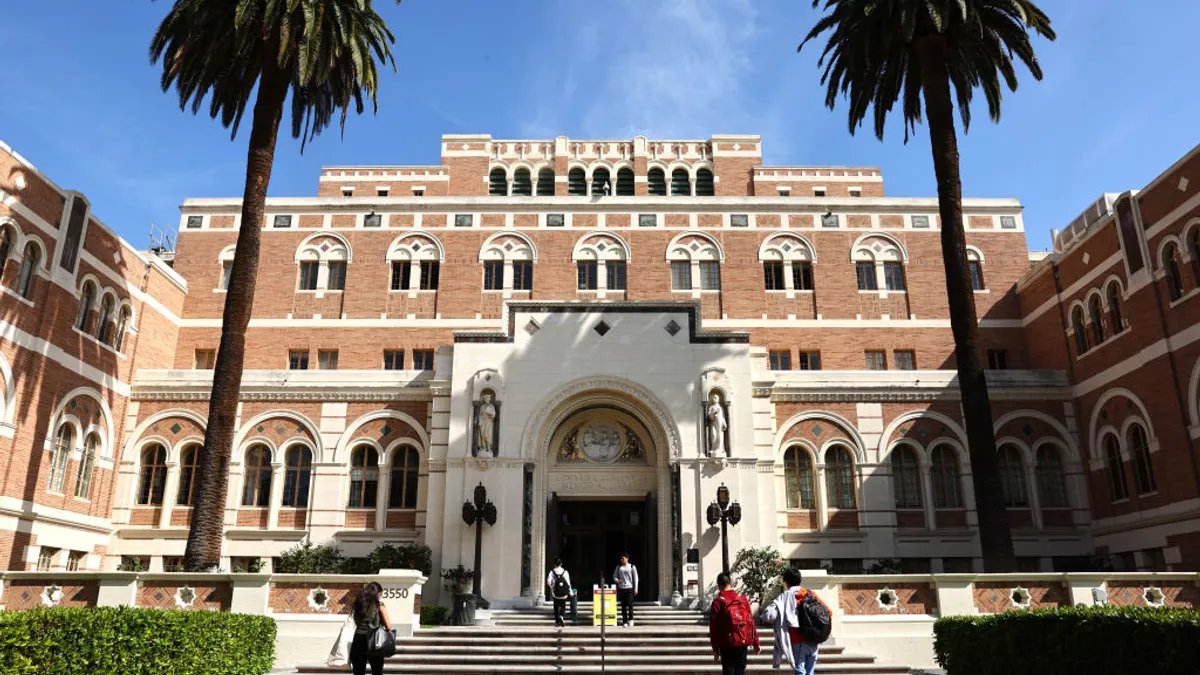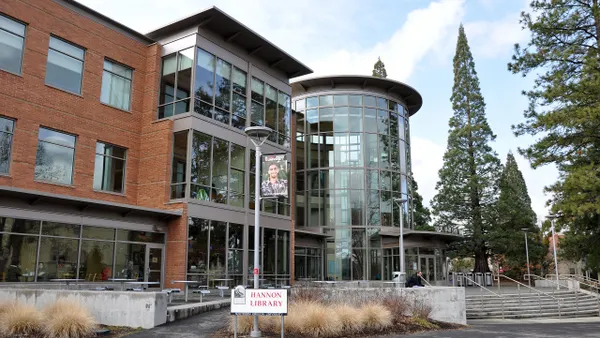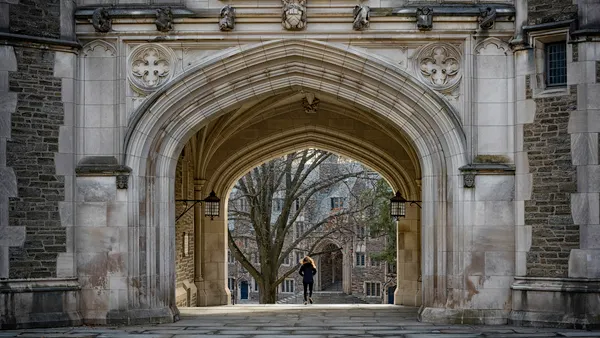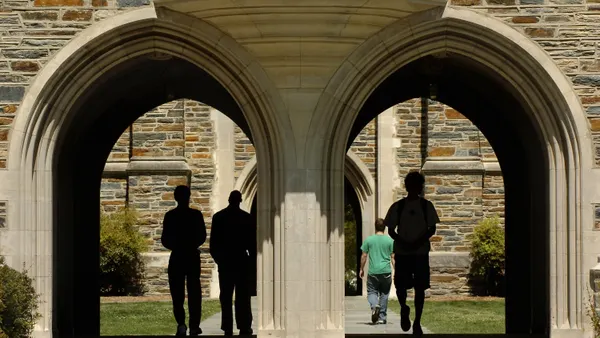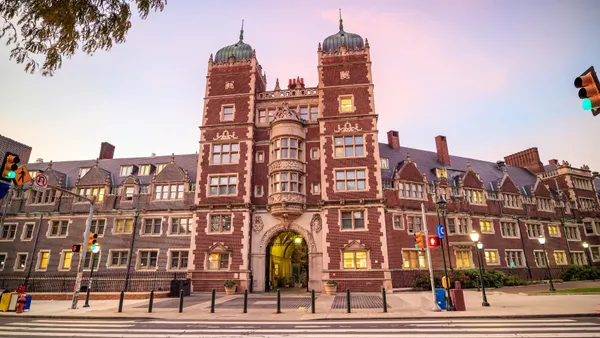Dive Brief:
- University of Southern California Interim President Beong-Soo Kim said Monday that the institution is “on track” to eliminate its long-term deficit by the end of the fiscal year after issuing over 900 layoff notices since July.
- The most recent round of cuts, the first of which took effect Friday, included 259 employees, per Melissa Gerdes-Leonard, the university’s associate vice president of client services. In an Oct. 27 letter to local and state officials, she said “cutbacks in funding and necessary budget reductions” triggered the latest layoffs.
- The newest cuts included dozens of student advisers, administrative assistants and other staff roles, all of which worked on USC's main campus in Los Angeles. Over the summer, Kim warned that workforce cuts would be needed to address the private university’s deficit and a massive blow to its federal funding.
Dive Insight:
USC has laid off at least 974 employees since the beginning of July, including workers in its health system, according to state filings.
Gerdes-Leonard said the university began notifying employees about the latest round of layoffs on Aug. 18, with the first cuts effective Friday and the last ones effective Dec. 31, according to the notice obtained by Morning, Trojan, a student-run newsletter.
In his Monday message, Kim said the university does not expect any additional layoffs for the rest of the calendar year.
Kim also said the university is working to place as many as 200 employees impacted by the layoffs in reorganized positions.
“The layoffs, of course, fall most heavily on those losing their jobs, but everyone else in our community also feels their impact — through the emotional strain of losing colleagues and friends, the resulting stresses on departments and units, and the challenge of doing more with fewer resources,” Kim said.
USC has had a painful financial year. In addition to a significant loss of federal funding, Kim said in July that the university faced potential decreases to international enrollment. Indeed, the university’s international enrollment dropped to 11,959 students this fall, down from 12,374 last year, the Los Angeles Times reported.
Those issues came at a time when USC was already experiencing a structural deficit. The university undertook several measures last fiscal year to address the shortfall, including budget reductions, a hiring freeze and a focus on fundraising.
Still, USC ended the 2025 fiscal year with an operating deficit topping $200 million, up from $158 million the year before. To address these challenges, Kim said in July that the university must overhaul its operating model, including through the employee reductions.
Looking forward, Kim said Monday that USC expects to provide merit increases in the next fiscal year. He also said that new research awards, fundraising and endowment performance has been “tracking favorably this year.”
USC isn’t the only major research university in California that’s been struggling financially.
In July, Stanford University laid off 363 employees to help reduce its budget by $140 million. Officials at the private institution, like those as USC, attributed the need for layoffs to a shifting federal policies, including lower support for research and an increase to the endowment tax paid by wealthy universities.
Meanwhile, the University of California, Los Angeles said in August that it would pause faculty hiring for the next academic year and consolidate its information technology teams. The Trump administration has demanded $1.2 billion from the university — along with sweeping policy changes — to settle civil rights investigations.
In July, the U.S. Department of Justice formally accused UCLA of violating Title VI, which bars federally funded institutions from discriminating on the basis of race, color or national origin. The agency accused UCLA of not doing enough to address antisemitism and of mishandling a pro-Palestinian encampment on its campus last year.


